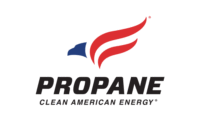Back in May, the Propane Education & Research Council (PERC) announced Bert Warner as its new director of commercial business development. In his new role, Warner will lead initiatives to increase propane awareness and execute market strategies that support propane-powered equipment and appliances for commercial construction and operations. PM Engineer Chief Editor Nicole Krawcke chatted with Werner about his goals for PERC, propane market trends and how propane can help meet decarbonization goals.
PM Engineer: What would you say is your most significant professional accomplishment to date?
BW: Before joining PERC, I was the national sales and business development manager at Robur Corporation. Robur is a leading manufacturer of advanced heating and cooling technologies, specializing in gas-fired heat pumps and chillers. During my time there, I orchestrated the strategic development and expansion of product representation in key markets across the United States and Canada. I also provided comprehensive sales training to the representative network and sales personnel, ensuring alignment with organizational objectives and fostering a culture of excellence in customer service.
PM Engineer: What would you say is your most significant professional accomplishment to date?
BW: A few years ago, I had a brief, three-minute conversation with an individual from a utility gas company in British Columbia, who happened to be their vice president of development. She shared some challenges they were facing and was searching for a solution. This conversation led us to discuss potential product solutions, including a commercial-grade gas heat pump.
From having no awareness of the product to achieving mass adoption within a few years, we forged an incredibly successful partnership. We built a pilot program from the ground up, which quickly gained widespread acceptance. The success of this implementation paved the way for us to initiate the largest rebate program incentive in North America. I created and led more than 50 training programs to educate stakeholders on the product and its benefits. This highly successful implementation has made a significant impact on the industry.
PM Engineer: Are there any particular skills or experiences that have been instrumental in your success?
BW: I have learned that to truly understand a challenge, you need to listen more than you talk. This methodology has allowed me to make a substantial and positive impact on stakeholders and partners.
PM Engineer: How does your previous experience lend itself to your new role at PERC?
BW: Today's world moves fast, and the expectations for those in the construction industry are always changing. I am passionate about energy solutions that are safe, clean, efficient, and reliable, ultimately working to create a better future for generations to come. Fortunately, propane is a solution that checks all these boxes and more. I consider myself a "boots on the ground" guy and enjoy meeting with stakeholders where they are and learning how propane-powered technology can support their current operations. My extensive experience in strategic product expansions, building strong relationships, and customer service is just a bonus.
PM Engineer: What are the top three things you hope to accomplish as the new director of commercial business development?
BW: Connect with engineers and specifiers at the beginning of the construction project to gain insight into their challenges. The benefits of propane in commercial applications are astounding. My goal is to support and educate engineers and specifiers on safe and innovative solutions that improve efficiency and business operations.
Create strong relationships with OEMs to learn more about available propane products that support the commercial sector and better understand new products that are coming to market. That way when engineers and specifiers are looking to integrate propane into their operation (or have a challenge we know propane can solve), we are confident there is a solution ready and available for them.
Provide propane marketers with the resources and tools that will continue to enhance their confidence in expanding propane use and promote business growth.
PM Engineer: What are the biggest trends facing the commercial propane market today?
BW: There is a huge push for decarbonization in the commercial industry. Engineers, specifiers, and business owners are looking for energy sources that support sustainability goals while also increasing efficiency and reliability. Luckily, propane is a one-stop shop solution. We are seeing it quickly expand into the market as more innovative technology is now available to support sustainability initiatives.
Renewable propane is another exciting trend to talk about. Ten years ago, renewable propane wasn’t in the marketplace, and now 4.5 million gallons are produced every year in the United States. Renewable propane has the same great features as conventional propane — reliability, portability, power — but with even lower carbon emissions when compared with other energy sources. It’s also versatile and is capable of being blended with traditional propane and can be used in existing propane equipment without requiring any upgrades.
PM Engineer: How can propane help commercial buildings meet decarbonization goals?
BW: Propane is a clean energy source that reduces emissions and improves overall energy efficiency. Propane reduces greenhouse gas emissions by as much as 40 percent compared with electricity in applications such as water heating because much of the nation’s electric power is generated by coal- and oil-fired power plants. Not only that, but propane also provides peace of mind by ensuring operations continue as normal (even during a power outage) without compromising efficiency or burning a hole in your pocket.
PM Engineer: What are the main factors driving the adoption of propane systems in commercial buildings?
BW: Simply put, engineers and specifiers prioritize efficiency, sustainability, and reliability in their business operations. They aim to cost-effectively enhance performance while supporting a cleaner environment. Propane is a solution that makes all of this possible.
PM Engineer: Are there any barriers hindering further market penetration? How can PERC overcome those barriers?
BW: Electrification and decarbonization are big topics in the construction industry. The message being shared with the commercial sector is that converting to all-electric will create a more sustainable and efficient infrastructure, but that isn’t true. It will take a mix of energy sources to fully achieve decarbonization.
PERC works diligently on sharing factual research that clearly shows propane as a viable energy option. Propane is an energy solution proven to be resilient, sustainable, and efficient across a wide range of applications. Whether used as a primary or secondary energy source, propane has the dependable performance needed in large-scale projects.
PM Engineer: How might factors such as technological innovation, regulatory changes, or economic trends impact the market over the next few years?
BW: The Propane Education & Research Council works collaboratively with manufacturers to develop new products to address ever-changing market challenges. As new products come to the marketplace, the propane industry continues to stay competitive by creating technology that meets and adapts to regulatory changes. This allows commercial contractors and business owners the opportunity to seamlessly incorporate or retrofit propane systems into their current operations, providing unmatched reliability and versatility.
PM Engineer: What’s the most unusual talent or skill you possess?
BW: Most people may not know this about me, but I can cook an excellent breakfast. A fan favorite in my household is biscuits and gravy. I also enjoy making omelets, fried potatoes, and french toast.
PM Engineer: What’s the best piece of advice you’ve ever received?
BW: You should always take life one step at a time. Nothing comes easy or instantly; it takes hard work and diligence.




